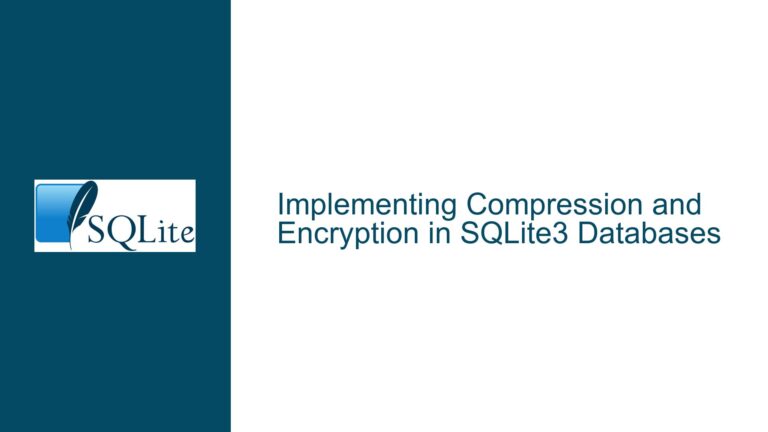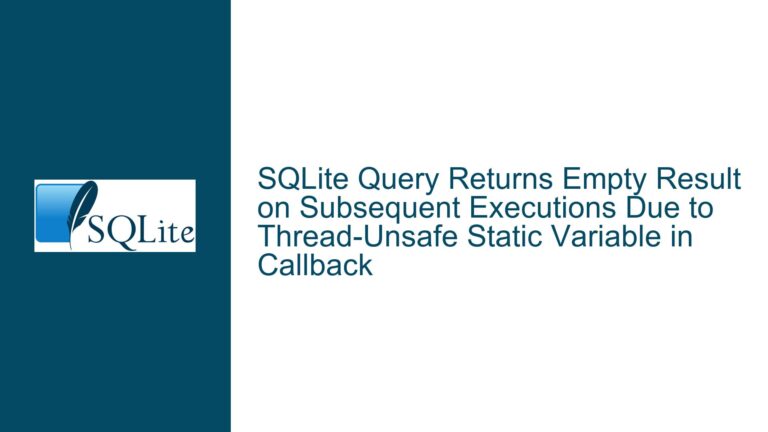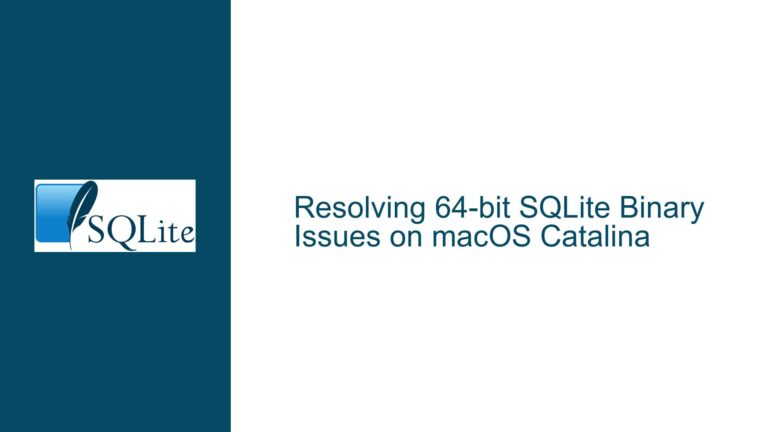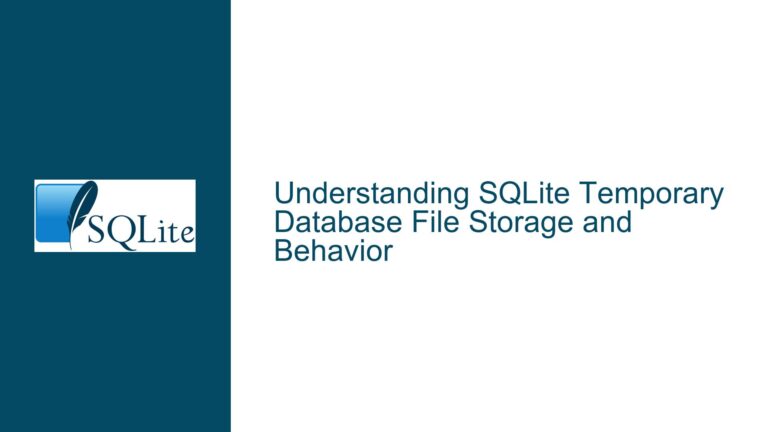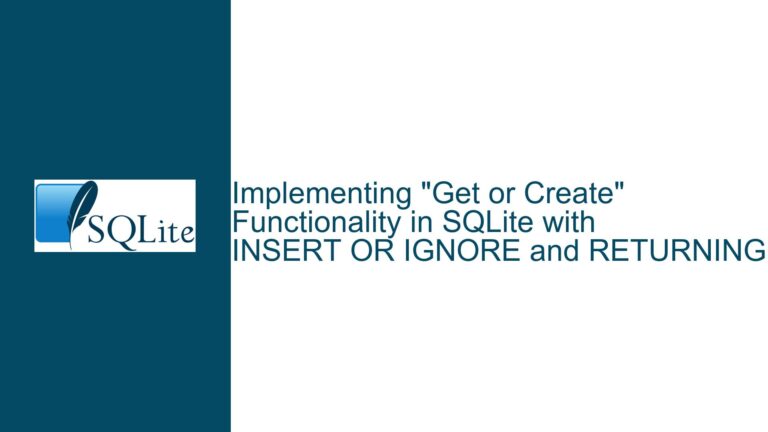Generated Columns Not Reported by PRAGMA table_info() in SQLite
Generated Columns Missing in PRAGMA table_info() Output When working with SQLite, one of the most common tasks is to inspect the schema of a table to understand its structure. This is often done using the PRAGMA table_info() command, which provides a concise summary of the columns in a table, including their names, types, and constraints….

